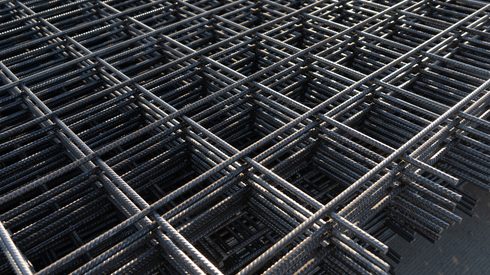Vale’s discussions about the DR pellet premium in the fourth quarter were concluded at $48 per dry metric tonne, down by $2 per tonne from $50 per dmt in the previous quarter, sources told Fastmarkets.
The latest move saw Fastmarkets’ latest assessment of the iron ore DR-grade pellet premium, quarterly contract fall to $48 per tonne on October 1, down by $2 per tonne from $50 per tonne on July 1
This also marks the third-consecutive reduction in DR pellet premiums since the first quarter, with Fastmarkets’ premium having already fallen from $55 per tonne in the first quarter to $53 per tonne in the second.
DR pellet premiums are calculated based on Fastmarkets’ iron ore 65% Fe Brazil-origin fines, CFR Qingdao index.
DR pellet consumption likely to fall
Sluggish demand from the world’s manufacturing and construction sectors, alongside plentiful and competitively priced steel exports from China, have placed significant downward pressure on steelmakers that regularly import DR-pellets, according to a trader in Singapore.
One country benefiting from the lower-cost Chinese steel is Turkey, where Fastmarkets’ steel hot-rolled coil import, CFR main port Turkey index averaged between $497.50-510 per tonne in September – down by $63.13 per tonne, or 11%, compared with average prices of $558.75-575 per tonne in June.
A steelmaker based in the Middle East told Fastmarkets the lack of demand for imports from European end users has weighed on finished steel prices so far in the second half of 2024, thereby limiting steelmaker margins, adding that mills in the Middle East-North Africa (MENA) region are now looking for opportunities to reduce the procurement cost of raw materials to alleviate the downward pressure in revenues.
And a second MENA mill source said it was “hard to justify maintaining its current levels of consumption of high-grade pellet when prices in the downstream steel market are [so] low, with no indication of a firm recovery in the coming months.
“The competitive pressure of steel export inflows from Asia is also something that MENA steelmakers have had to contend with,” the source added.
Lackluster domestic demand in China is the catalyst
A sluggish domestic market in China, meant that HRC and HR sheet exports increased to 2.37 million tonnes in August, up by nearly 66% from 1.43 million tonnes in July after two consecutive months of decline in the previous months, according to Fastmarkets’ calculations based on data published by China’s General Administration of Customs on September 23.
Fastmarkets’ assessment for steel HRC domestic, ex-whs Eastern China averaged 3,134.21-3,152.11 yuan per tonne ($447-449) in September, down by 628 yuan from June’s average of 3,760.53-3,781.58 yuan per tonne.
“Most of the larger-scale steelmakers that were less willing to cut production despite sluggish demand in the Chinese market had the option to offload additional cargoes into the export market at low prices – allowing them to maintain revenue gains instead of lowering production [rates],” a trader in Xiamen said.
“the lower costs of production due to cost savings from mass production allows the mills to push massive volumes [through] into the export market at the lowest prices,” the trader added.
Asian steelmakers seek cost-effective alternatives
Vale‘s fourth-quarter premiums for BF pellets were also adjusted lower, the company said, falling by $2 per tonne to $38 per tonne.
And BF pellet premiums in Asia are now at their lowest levels since 2020, with the continuing influx of supplies from Brazil now confronted by lukewarm demand from importers, sources said.
A second trader in Singapore told Fastmarkets that regional steel prices in Asia were particularly affected by the high volumes of exports out of China.
Fastmarkets’ index for steel HRC (Japan, Korea, Taiwan-origin), import, CFR Vietnam averaged $502-513.75 per tonne in September, down by $62.12 per tonne, or 11%, from June’s average of $565-575 per tonne.
Chinese steel exports have been undercutting finished steel product prices from regional steelmakers, forcing mills outside China to lower their offers to maintain sales volumes, according to a trader in East Asia.
The trader said that some mills in South Korea had been exploring options to either reduce their BF pellet consumption using lower production rates or replacing the use of Brazilian BF pellet with other more cost-efficient alternatives, such as pellet cargoes from India.
With the high premiums on BF pellet from Brazil constituting a large proportion of raw materials costs for mills in South Korea and Japan, steelmakers are increasingly amenable to exploring lower-grade alternatives from other sources, such as Australia and India, a third East Asia-based trader said.
And sources told Fastmarkets that a 50,000-tonne cargo of Mandovi pellets with a laycan in end-September was traded earlier in the month at an undisclosed premium to a steelmaker in South Korea.
Fastmarkets understands that the cargo was 65-66% Fe pellet and is due to arrive at the port of discharge in the first half of October.
And, according to a trader in Shanghai, while an uptick in number of spot offers from Brazil and India have kept buying ideas constrained to levels significantly lower than the quarterly negotiated premium, the ramp-up in pelletizing capacity by some miners is likely to result in an increase in spot BF pellet supplies, which could, in turn, dampen the pellet premiums further – given the lukewarm levels of demand.
“Pellet demand is ultimately contingent on downstream steel market fundamentals, so a stronger push in consumption will need to be seen before any recovery in prices,” an analyst in Singapore told Fastmarkets.



